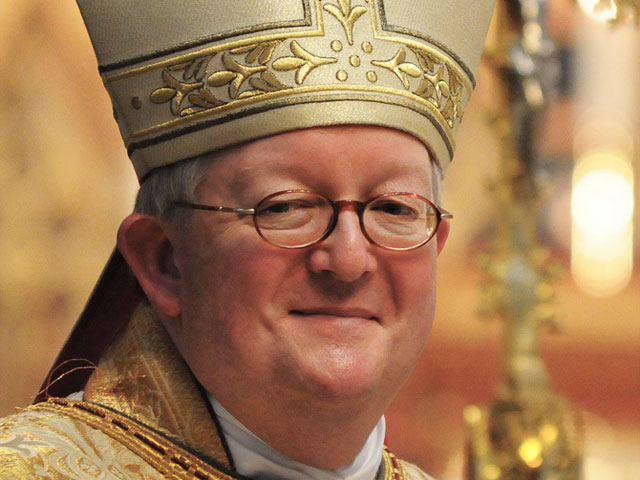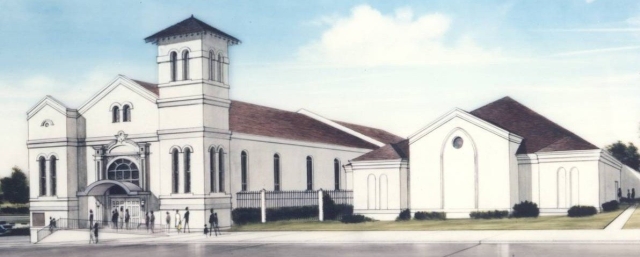Has anyone seen a story in the U.S. press about the opening of France’s first gay-friendly mosque? I’ve not come across anything in the U.S. mainstream media so far, but the story has received a great deal of play from the European press.
Now the cynic in me would want to feign shock at the New York Times not having picked up this story as it deals with an issue dear to its heart. However, it is the foreign policy ramifications of this story that I thought would attract the attention of the U.S. media elite — for the underlying theme of this story has been the philosophical principle behind U.S. Middle East policy. All right-thinking people — government leaders, columnists, the professoriate — believe Islam can be reformed and its tenets brought in line with the Western liberal mind. I am surprised not to have seen America’s public intellectuals jump all over this story.
On Friday Le Monde published a tight, nicely written story entitled « Une “mosquée” ouverte aux homosexuels près de Paris ». Drawing from a Reuters wire service story and its own reporting, Le Monde reported that a gay French Muslim had opened a mosque in a borrowed room on the grounds of a Buddhist dojo outside Paris.
Reuters reported:
Europe’s first gay and lesbian-friendly mosque opens on Friday in an eastern Paris suburb, in a challenge to mainstream Islam’s long tradition of condemning same-sex relationships. The mosque, set up in a small room inside the house of a Buddhist monk, will welcome transgender and transsexual Muslims and seat men and women together, breaking with another custom where the sexes are normally segregated during prayer. Its founder, French-Algerian gay activist and practicing Muslim Ludovic-Mohamed Zahed, will also encourage women to lead Friday prayers, smashing yet another taboo.
“It’s a radically inclusive mosque. A mosque where people can come as they are,” said Zahed, 35, whose prayer space will be the first in Europe to formally brand itself as a gay-friendly mosque, according to Muslim experts.
M. Zahed sounds like he has latent Episcopalian-syndrome and uses all the right sort of Christian left buzz words. The story offers a few more words of explanation from M. Zahed, negative reactions from French Muslim leaders and closes with comments from a French academic.
“The goal of these Muslims is to promote a form of Islam that is inclusive of progressive values,” said Florence Bergeaud-Blackler, an associate researcher at France’s Research and Studies Institute on the Arab and Muslim World. The push by gay Muslims for acceptance comes as a younger generation of Muslims is questioning some of the existing interpretations of the Koran as over-conservative. “Even though they are still a extreme minority, their views have a solid theological basis. So their message is not having an insignificant impact,” Bergeaud-Blackler said.
The Le Monde story goes a bit deeper. The comments from French Muslim leaders are much harsher than those reported by Reuters.
« Il y a des musulmans homosexuels, ça existe, mais ouvrir une mosquée, c’est une aberration, parce que la religion, c’est pas ça », estime Abdallah Zekri, président de l’Observatoire des actes islamophobes, sous l’autorité du Conseil français du culte musulman (CFCM).
Which I roughly translate as:
“There are Muslim homosexuals. They exist. But to open a mosque, that is an aberration because homosexuality is contrary to our religion,” said Abdallah Zekri, president of the Islamophobia (sorry AP but that’s what Le Monde calls it) Observer for the CFCM.
Le Monde also has some choice quotes from M. Zahed as well.
« Les musulmans ne doivent pas se sentir honteux. L’homosexualité n’est condamnée nulle part, ni dans le Coran ni dans la sunna. Si le prophète Mahomet était vivant, il marierait des couples d’homosexuels. » Il rêve d’un islam « apaisé, réformé, inclusif », qui accepterait le blasphème car « la pensée critique est essentielle pour le développement spirituel ».
Which I understand to mean:
“Muslims should not feel ashamed. Homosexuality is not condemned either in the Koran or in the Sunna. If the Prophet Muhammad were alive, he would marry of homosexual couples.” [Zahed] dreams of “peaceful, reformed, inclusive” Islam which which accepts blasphemy as “critical thinking essential to its spiritual development.”
Le Monde frames the story in a sympathetic light to M. Zahed. He is the underdog seeking to reform an ossified, dyed in the wool religious establishment. The article offers both sides of the debate — M. Zahed’s beliefs and the institutional response. However, I am surprised this item has not received the New Yorker 10,000 word treatment. A Muslim who speaks like an Episcopalian I imagine would be catnip to the mainstream American media.
The Islam of M. Zahed is that of Presidents Bush and Obama. Government policy since 9/11 has been predicated on the belief that Islam is like Christianity or Judaism. Given enough time, money and jawboning, Islam can reform and accommodate itself within a secularist pluralist society.
Le Monde‘s article about M. Zahed and Islam is written from a Westernized Christian worldview. Change the location to Texas and Islam for Southern Baptists and you would have the exact same story — even down to the buzz words and phrases proffered by M. Zahed. How often is it repeated that Jesus never said anything about homosexuality?
However, Islam is fundamentally different from Judaism and Christianity and this difference is what makes it nearly impossible for Islam to reform. And, it is the consensus of Islamic scholars that Islam is in no need of reform. Writing in the Asia Times under the pen name Spengler, David P. Goldman’, stated:
Hebrew and Christian scripture claim to be the report of human encounters with God. After the Torah is read each Saturday in synagogues, the congregation intones that the text stems from “the mouth of God by the hand of Moses”, a leader whose flaws kept him from entering the Promised Land. The Jewish rabbis, moreover, postulated the existence of an unwritten Revelation whose interpretation permits considerable flexibility with the text. Christianity’s Gospels, by the same token, are the reports of human evangelists.
The Archangel Gabriel, by contrast, dictated the Koran to Mohammed, according to Islamic doctrine. That sets a dauntingly high threshold for textual critics. How does one criticize the word of God without rejecting its divine character? In that respect the Koran resembles the “Golden Tablets” of the Angel Moroni purported found by the Mormon leader Joseph Smith more than it does the Jewish or Christian bibles.
Now almost 10 years old, Spengler’s “You say you want a reformation?” remains fresh and his observations stand as a challenge to U.S. government policies that believe Islam can be transformed into another variety of American Protestantism.
Speaking at the U.N. in September, President Obama said of the Arab Spring:
“True democracy—real freedom—is hard work,” Mr. Obama said. “Those in power have to resist the temptation to crack down on dissidents. In hard economic times, countries must be tempted— may be tempted—to rally the people around perceived enemies, at home and abroad, rather than focusing on the painstaking work of reform.”
Can Islam, which allows for no distinction between church and state, reform? The academic cited in the Le Monde piece believes it can. France’s first gay mosque will be a symbol of the younger generation’s desire for an “Islam that is inclusive of progressive values,” she stated. A contrary voice speaking to Islam’s response to minority voices (past and present) would have been a welcome counterweight. And give pause to those expecting peace to break out all over the Muslim world.











